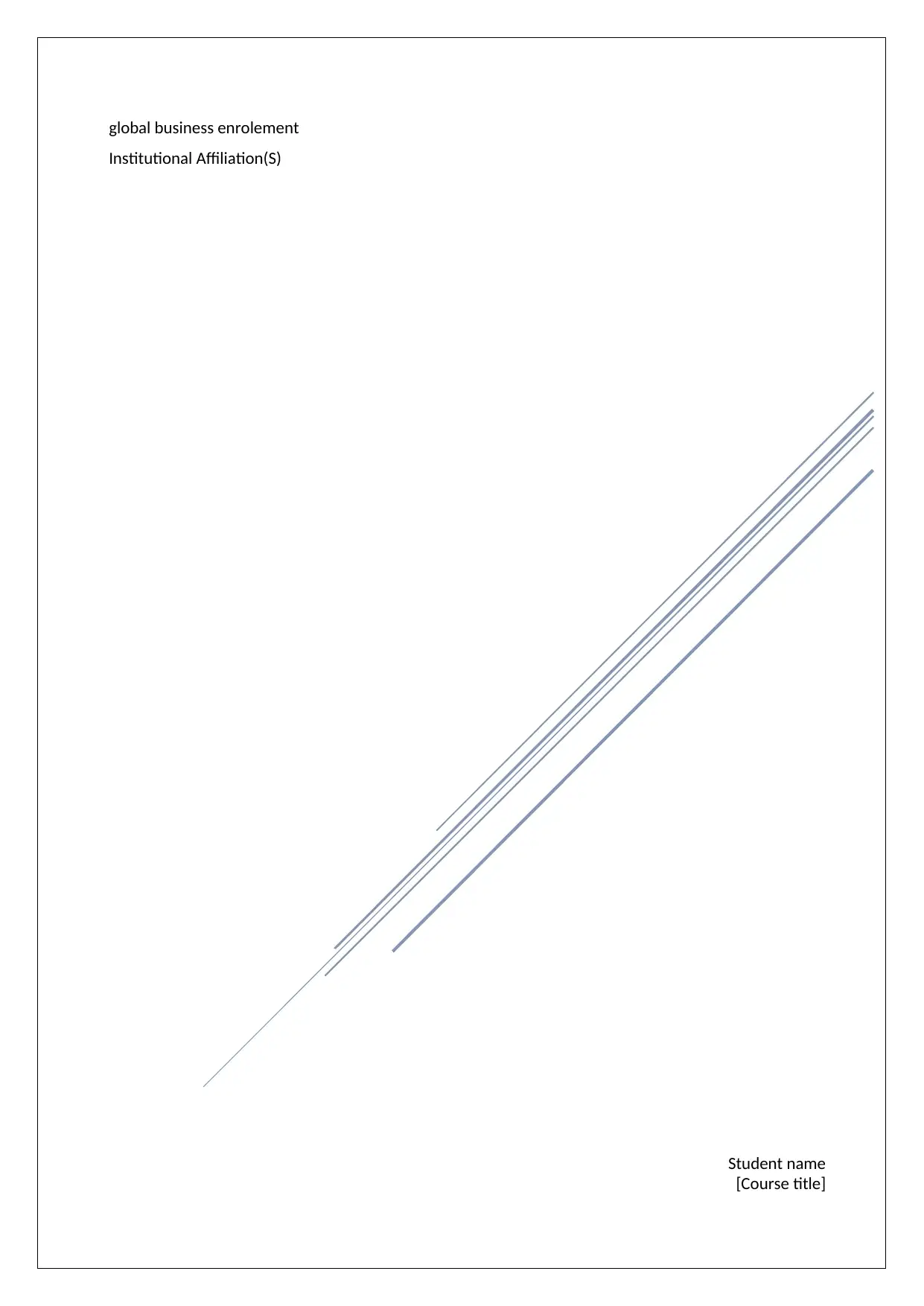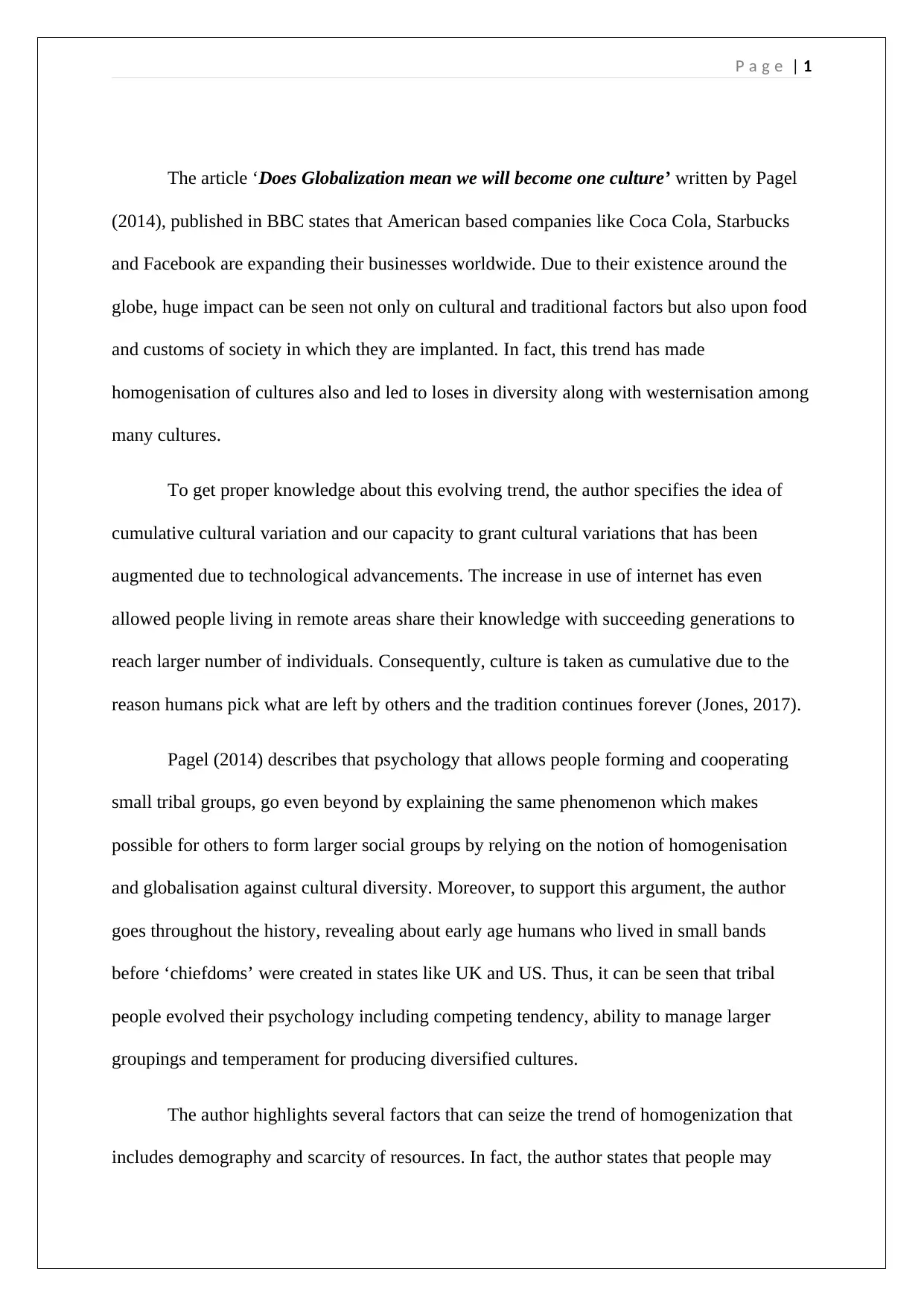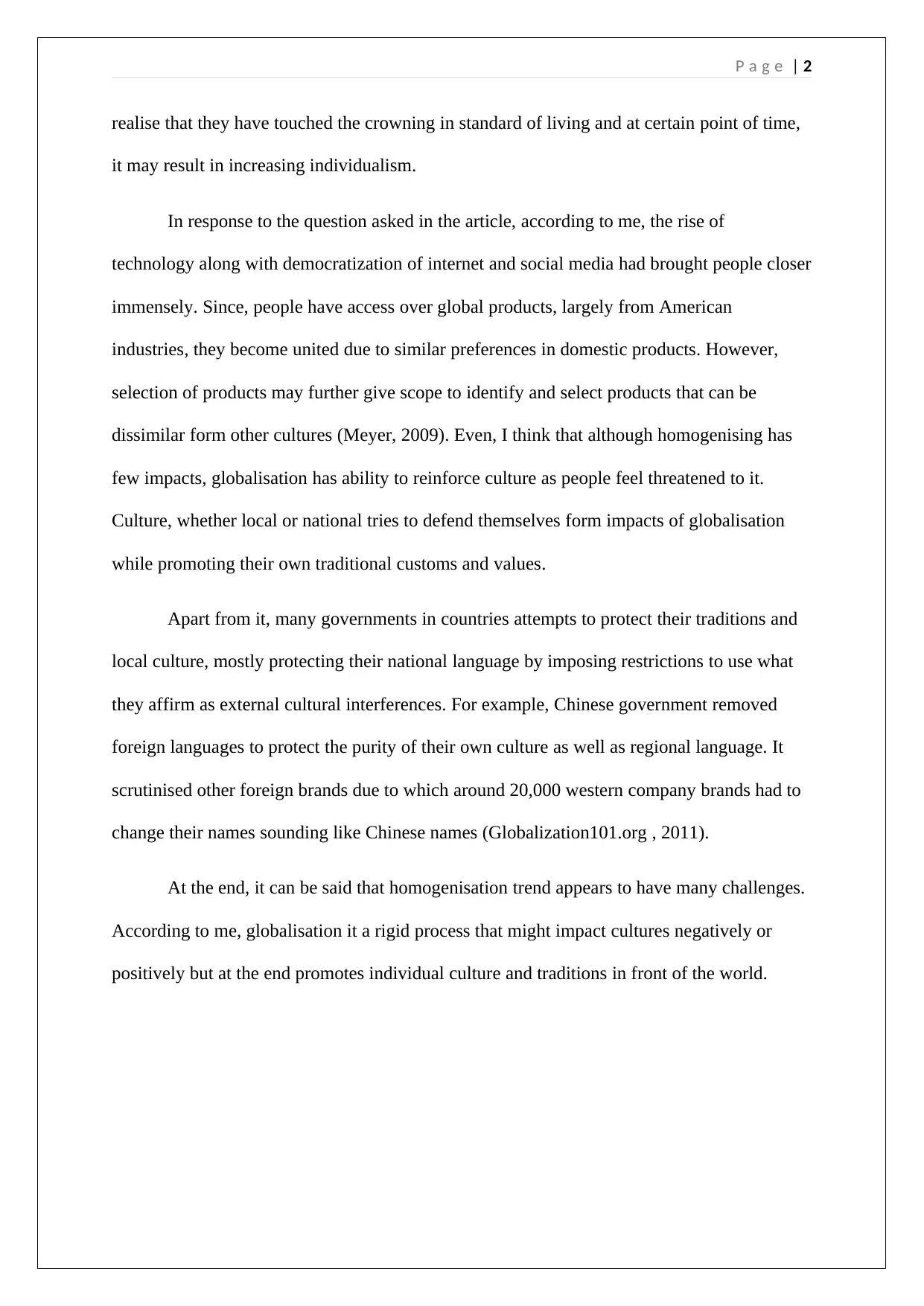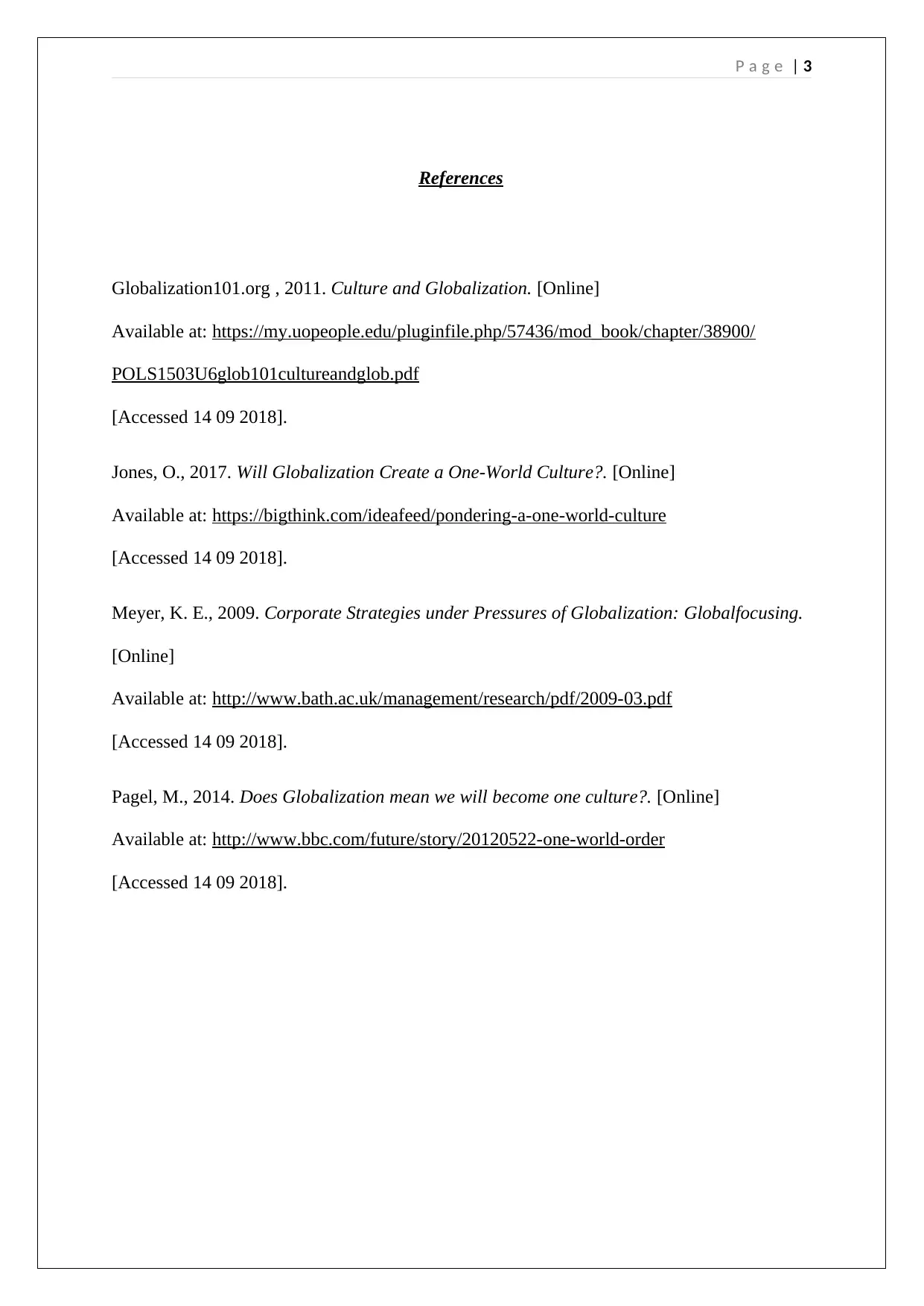Globalization, Culture, and Homogenization: A Sociological Analysis
VerifiedAdded on 2023/06/05
|4
|759
|181
Essay
AI Summary
This essay examines the impact of globalization on culture, particularly focusing on the trend of homogenization driven by the expansion of American companies worldwide. It discusses how this trend affects cultural and traditional factors, as well as food and customs, leading to a loss of diversity and increased westernization. The essay references the concept of cumulative cultural variation and how technological advancements, especially the internet, have facilitated cultural exchange and knowledge sharing. It also explores the psychology behind the formation of social groups and the historical evolution of human societies. The author argues that while globalization promotes unity through shared preferences for global products, it can also reinforce individual cultures as people seek to protect their traditions and values from external influences, citing examples of government interventions like China's efforts to preserve its language and culture. Ultimately, the essay concludes that globalization is a complex process with both positive and negative impacts, but it ultimately promotes individual cultures and traditions on a global stage. Desklib provides similar essays and study resources for students.
1 out of 4








![[object Object]](/_next/static/media/star-bottom.7253800d.svg)